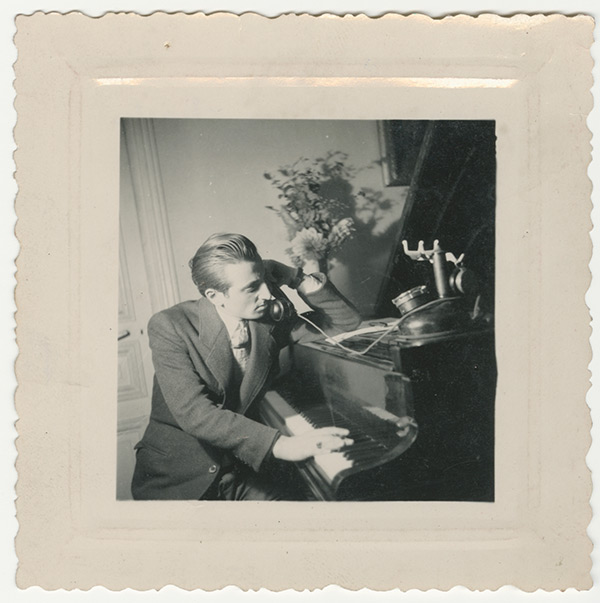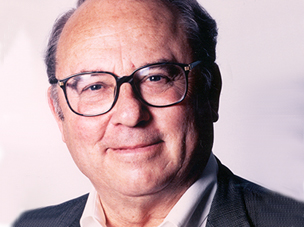It has often been said of him that he was "the last of the giants". The first, rather, since both the quality and longevity of his career have made him one of the most popular French singers in the world, starting with the United States, which, besides offering him a star on Hollywood Boulevard, sanctified him as the "most important singer of the twentieth century", ahead of Bob Dylan, Frank Sinatra and Elvis Presley...

© DR - Fonds Sacem
It has often been said of him that he was "the last of the giants". The first, rather, since both the quality and longevity of his career have made him one of the most popular French singers in the world, starting with the United States, which, besides offering him a star on Hollywood Boulevard, sanctified him as the "most important singer of the twentieth century", ahead of Bob Dylan, Frank Sinatra and Elvis Presley... With over a thousand songs recorded in multiple languages, more than seven decades of artistic activity, he remains one of the most influential authors and composers of our time. A transgenerational artist, never tainted by the caprices of fashion or the vagaries of show business. Who has never once hummed La Bohème (text by Jacques Plante) or La Mamma (text by Robert Gall)?
It all began in May 1924 when the young Shahnourh Varinag Aznavourian was born in Paris to an Armenian family. He became Charles Aznavour at 9 years-old. A singer and aspiring comedian, admirer of Maurice Chevalier and Charles Trenet, he performed a few years later as part of a duo with pianist Pierre Roche, before being noticed by Edith Piaf and embarking on a solo career. This did not prevent him from writing songs for Johnny Hallyday, Eddy Mitchell, Mireille Mathieu or with Gilbert Bécaud and with his brother-in-law, the great composer Georges Garvarentz. Despite critics who lambasted his voice and his small size, he had several hit records, with Sur ma vie and Après l’amour, the beginnings of a series of smash hits, including the legendary Je m’voyais déjà, Hier encore or Emmenez-moi. Aznavour's style was born: a mix of romanticism and realism, with his elegant pen not hesitating to tackle subjects as taboo as homosexuality (Comme ils disent) or rape (La Marguerite). Both on record and onstage, where he headed recitals and tours around the planet, he refused any notion of retirement as he got older.
While France, its culture and its language, have always been dear to his heart, Aznavour always celebrated Armenia, his native land, which eventually granted him citizenship and of which he would become the permanent UN representative. In 1988, after the violent earthquake that struck the country, he created the "Aznavour pour l’Arménie" association and wrote the song Pour toi Arménie the profits of which were used to finance a solidarity foundation.
A poet, in love with words and notes, a man with a big heart, Aznavour was also a talented actor. He starred in over 60 films, including the famous Tirez sur le pianiste by François Truffaut. Only a few weeks ago, Charles Aznavour was on tour in Japan. An indefatigable show man and hard worker, he immersed himself in his passions until the end. And Aznavour's voice is not about to be silenced.
"Inestimable master of the chanson, Charles Aznavour embodies a whole section of our musical heritage. With his departure, the great Charles leaves all the lovers of the great French chanson, creators, and the whole of France in mourning. "
Jean-Marie Moreau, songwriter, Chairman of the Board of Directors of Sacem.
"We have just lost a monument in French music. But the work of Charles Aznavour will remain, solid, sensitive, splendid. This great little man knew, like nobody else, how to talk about the everyday life of all people. And I think that he shortened his Armenian name not to make it more French, but to make it rhyme with "amour" (love). He was a perfect success throughout his life. "
Claude Lemesle, songwriter, Honorary President of Sacem.
Discover all the Sacem archives of Charles Aznavour
Published October 04 2018


